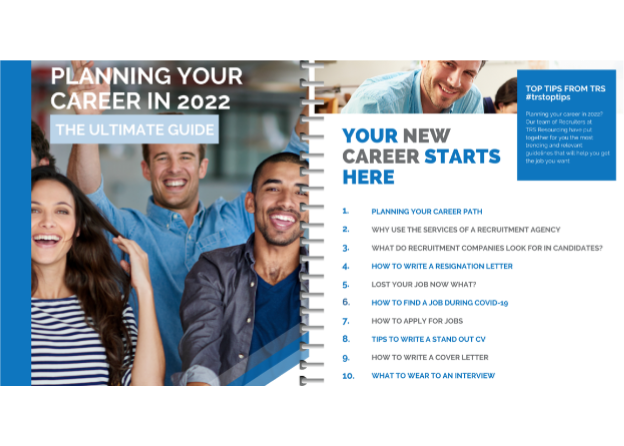
The Ultimate Career Guide for Job Seekers
Career Guide for Job Seekers
Looking for a job can be a daunting and time-consuming task, but with the right preparation it can also be an exciting opportunity to start fresh and take your career in a new direction. Whether you're currently unemployed and seeking new employment, or employed and looking for a change, there are a few important things you need to know about job searching in Australia and how finding a job with a recruitment agency can be of benefit to you.
Looking for a job in Australia?
Check out our guide on job searching to learn more about the process and what you need to know. From researching potential roles to attending interviews, we'll give you the inside scoop on how to land your dream job.


Planning Your Career Path
When you start your job search with a career plan, you're more likely to be successful in finding the right job for you.
Planning out your career can be a daunting task, especially if you're starting a new job or seeking to change careers. But with the right advice, you can map out a clear path to success. Don't let uncertainty hold you back. Reach out to us today for expert guidance and support in charting your ideal career path.
Here are some top tips from our expert TRS Recruitment Consultants:

1. Define your Goals
What do you want to achieve in your career? Write down your goals and make sure they are SMART (specific, measurable, achievable, realistic and time-bound).

2. Research your Options
Explore different career paths and research the skills and experience you'll need to progress. Talk to people who are already working in the field you're interested in and ask for their advice. Figure out where the job opportunities are in your field, and whether you'd be willing to relocate to pursue your dream.
3. Create a Plan
Once you've defined your goals and researched your options, it's time to create a plan. This should include steps such as completing relevant qualifications, gaining experience and networking with industry contacts.

4. Take Action
It's important to take action and not just sit back and wait for things to happen. Start working towards your goals and make the most of opportunities that come your way.

5. Be Flexible
Career planning is not an exact science, so be prepared to make changes along the way. Be flexible and open to new opportunities, and don't be afraid to change your plans if something better comes along. As long as you're continually learning and improving your skills, you'll be able to capitalise on opportunities that may come your way.
TRS Resourcing is a Leading Recruitment Specialist
TRS Resourcing is a leading recruitment specialist with extensive expertise in career planning. If you need any further advice, please don't hesitate to get in touch. We'd be more than happy to help you map out your ideal career path.
